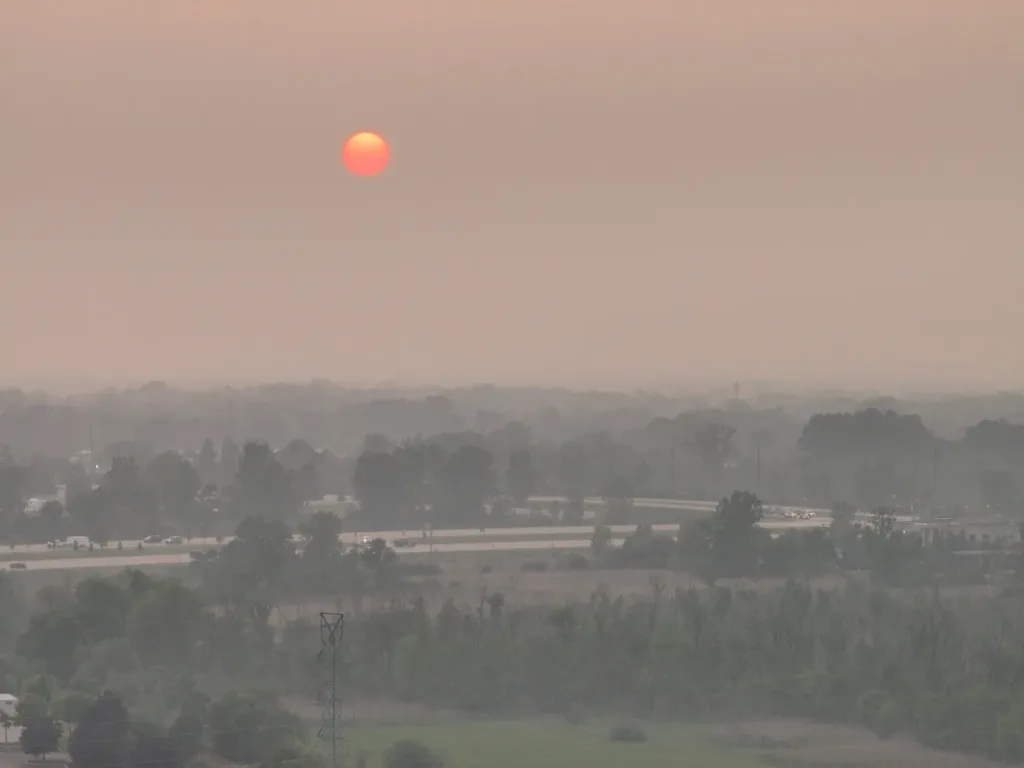Op-Ed | Adams: A national solution is needed to combat harmful wildfire smoke
Op-Ed | Adams: A national solution is needed to combat harmful wildfire smoke
Op Ed by Marvell Adams, Jr, CEO of Caregiver Action Network
Originally published in The Detroit News, Aug. 5, 2025
Americans in the Midwest and the Northeast woke this week to a thick layer of hazardous smoke hanging over their towns and cities, forcing many to stay inside or take precautions to cope with the unhealthy air.
The cause: smoke from intense Canadian wildfires moving through the atmosphere. In June, the worst air quality in the country was reported in Delaware with the same culprit — wildfires in a neighboring state pushing unhealthy air their way. This month, the Madre Fires have burned more than 80,000 acres in California and triggered health warnings for communities in the state.
Simply put: Wildfires — and wildfire smoke — do not stop at state lines. Communities in all 50 states experienced wildfires in 2024 and these fires are now peaking, noticeably earlier than in past years. These shifts in wildfire trends are alarming. Americans need a modern, comprehensive solution that addresses today’s challenges. A national, coordinated response to wildfires — and wildfire smoke — will help keep Americans healthy and safe.
 A haze from Canadian wildfires looms over Commerce Township. David Guralnick, The Detroit News
A haze from Canadian wildfires looms over Commerce Township. David Guralnick, The Detroit News
With an increased number of wildfires occurring in the United States, wildfire smoke has eroded efforts to improve air quality, driving it down by an average of 25% across states since 2016. Wildfire smoke can travel hundreds of miles and linger in the air for days or even weeks.
An estimated 125 million Americans will be exposed to unhealthy levels of air pollution by 2050, largely due to increased smoke from wildfires. Multiple studies link wildfire smoke exposure to cardiovascular health issues, lung health issues and increased mortality rates. For the six in ten Americans living with at least one chronic disease, exposure to smoke can exacerbate existing health issues. Adults over the age of 65, many of whom rely on family caregivers for support, are also at a higher risk of experiencing adverse health effects after exposure to wildfire smoke. Family caregivers play a critical role in ensuring their loved ones are safe from smoke exposure during wildfire events. However, protecting vulnerable Americans from the harms of wildfire smoke takes more than just caregivers. We need a holistic approach to effectively manage this problem.
Contaminated air can make daily tasks and activities difficult or even harmful to health. For the 105 million Americans who are caregivers to loved ones, the unpredictable nature of wildfires and wildfire smoke can also seriously disrupt or jeopardize the routine care they provide on a regular basis. Unfortunately, limiting exposure to wildfire smoke is difficult since smoke can easily spread to neighboring states and communities, putting more Americans at risk.
A national response to wildfires will help ensure that communities across the country have the resources needed to protect themselves and support fire prevention activities. Establishing the proper infrastructure to prevent and suppress wildfires will not only mitigate health risks, but it will also protect families and help reduce costly damage to homes and businesses. Americans can no longer shoulder the $839 billion economic burden of wildfires each year.
Right now, Congress is debating legislation that could make an impactful step forward in creating a national response to wildfires. The Fix Our Forests Act would facilitate greater coordination among local, state and federal authorities for wildfire prevention practices. While the bill focuses on land management and restoring forest health, it is a critical part of a comprehensive approach centered on prevention.
The Fix Our Forests Act has passed the House, and the Senate introduced a separate version. This bipartisan legislation will help our country establish a coordinated response to wildfires that benefits all Americans.
We cannot afford another wildfire season with contaminated air and intense wildfires threatening our health and safety. It’s up to Congress to act with urgency and get this legislation to the President’s desk.
Marvell Adams Jr. is the Chief Executive Officer of Caregiver Action Network, the nation’s leading family caregiver organization.



